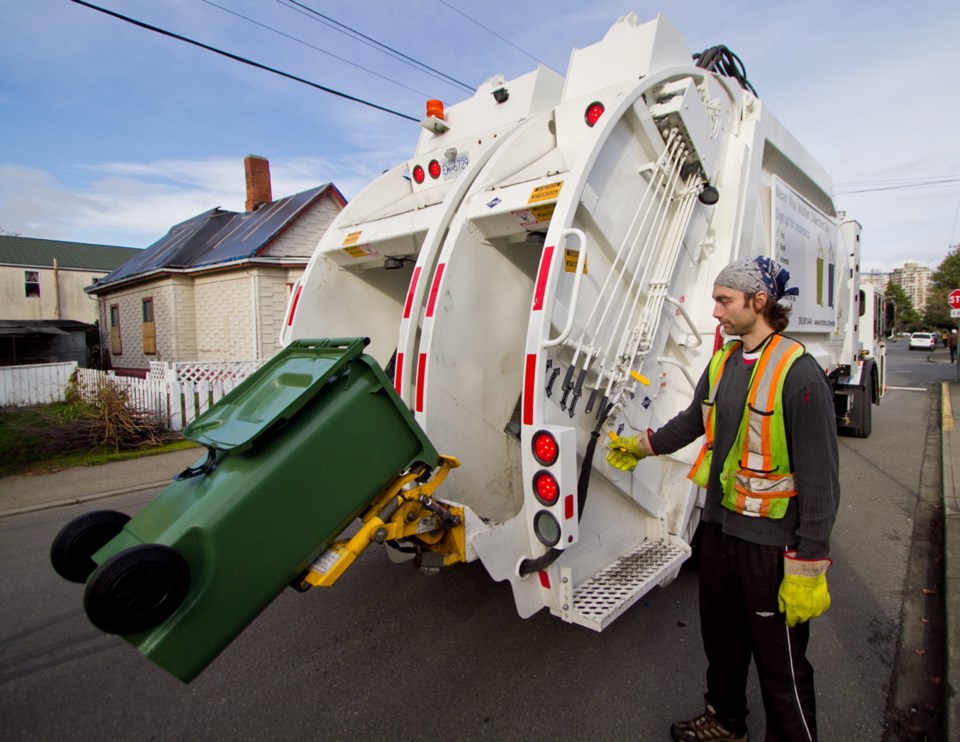Those potato peels and apple cores thrown into Greater Victoria’s green bins are a small step closer to being processed at home.
Capital Regional District directors have agreed to a two-year contract with D.L. Bins Ltd. to haul and process kitchen scraps. The Central Saanich company has said it will haul and process some of the scraps at Enviro-Smart Organics in Delta.
But for those CRD directors who are intent on doing things close to home, D.L. Bins has also identified Fisher Road Recycling in Cobble Hill as another site where it will process waste.
“A portion will be processed on the Island,” said CRD director Ben Isitt, a Victoria councillor. “So it gets us closer to the in-region processing of kitchen scraps.”
Kitchen scraps collected from Victoria, Esquimalt, Oak Bay, Sidney and View Royal have been trucked to Richmond and broken down to produce heat and compost.
Scraps from the Western Communities, which are collected by private contractors, are also shipped to Richmond. Saanich has its own contract to truck kitchen scraps to Fisher Road.
The new CRD contract represents an annual savings of about $250,000.
D.L. Bins will be paid $114.50 per tonne of kitchen scraps for an estimated annual cost of $1,145,000, most of which will be paid by tipping fees generated at the Hartland Landfill. The previous rate was $140 a tonne.
The CRD banned kitchen scraps from Hartland Landfill entirely last year, part of an effort to extend the life of the landfill by diverting waste for recycling.
Residents have also been encouraged to use backyard composting. The CRD estimates it has diverted about 40,000 tonnes of waste from the landfill since 2007.
But it has not been without hiccups. After signing up with Foundation Organics to compost waste in Central Saanich, the CRD was swamped by odour complaints.
The firm’s licence was pulled in 2013 and the CRD started trucking its organic waste out of the region.
Isitt said other compost methods exist and are being used already in B.C. without odour complaints — and such an operation could be set up at the landfill.
“The solution that has been staring the CRD in the face for years is making our own land available at Hartland Road,” Isitt said.
“We can partner with local operators to process this resource locally and make the finished product available to farmers, municipal parks and the residents who produce the scraps.”



